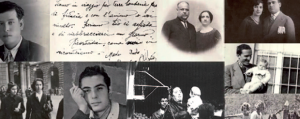CULTURE An Award for the Future of Holocaust Research
The Center for Jewish Contemporary Documentation (CDEC), a prominent Jewish institution devoted to research on contemporary Jewish history, won the LODLAM Challenge 2015 (Linked Open Data in Libraries, Archives, Museums). The award ceremony took place in Sidney at the end of June.
The CDEC won the prize thanks to its Open Memory Project, conceived and developed by the institution in partnership with regesta.exe (a company that takes care of organizing digital content and multimedia files on the web). The goal of Open Memory Project is to uncover the identity of the Drowned and the Saved from the Holocaust, as the prominent Italian survivor and writer Primo Levi called them.
Essential to the project was the use of Linked Open Data (LOD), a methodology that connects different data and that has made available thousands of sources on the history of the Holocaust in Italy, collected by the CDEC over the decades, putting them in contact with other databases.
This project has led to the creation of the new portal “CDEC Digital Library”. Through the LOD, the CDEC has created a digital library containing the names of people living during the Holocaust. This allows for the research of the Jewish victims of Nazi persecution and the finding of information about their fate (i.e. the place of deportation and family ties), avoiding errors such as overlapping or duplication of names.
Representing CDEC and regesta.exe at the ceremony were Laura Brazzo and Silvia Mazzini. “The challenge of LODLAM,” explained Laura Brazzo “extended our research far beyond the Jewish world and made our success very meaningful. Many people asked us if the model developed by the CDEC is applicable elsewhere, and we are happy to be an inspiration to other institutions. We hope that other Jewish archives in Italy adopt the LOD, allowing them to correlate their data with ours.”
“Starting from the digitization of the names of the Holocaust, we have created a digital library that will enrich the resources of the CDEC’s archive documenting the presence of Jews in Italy from the nineteenth century until today,” Brazzo added. “We also just received a grant from the Claims Conference that will allow us to work on the same project with the names of people who were not deported to death camps and survived the Holocaust elsewhere. Our goal is to reconstruct the story of entire families.”
“This award made me think about CDEC’s history,” historian of CDEC and member of the Union of Italian Jewish Communities’s council Liliana Picciotto told Pagine Ebraiche “We started to collect the names of the people involved in the Holocaust on paper many decades ago, and when in 1984 the first computer from Olivetti became available our lives and work changed radically. Now it will change again.”

